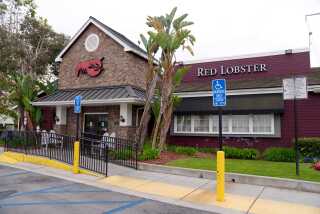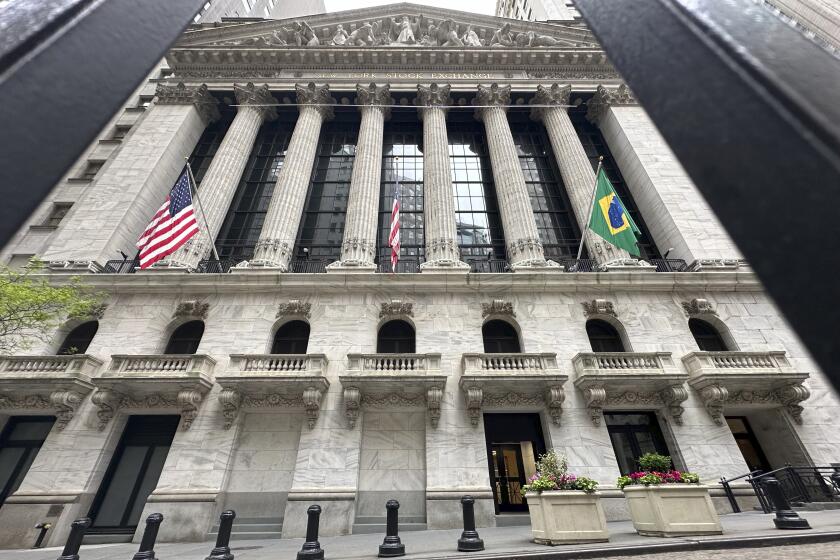Money Market Funds Expected to Report Utility Security Jolt
Mutual fund manager Scudder Kemper Investments took a $6-million hit last month to bail out a money market fund that invested in California’s troubled utilities. And more investment companies are expected to follow suit.
That’s because so many have held securities in Southern California Edison, a unit of Edison International and PG&E; Corp.’s Pacific Gas & Electric, both of which defaulted on payments in January and have been perilously close to bankruptcy.
As many as 20 money market funds may end up turning to a deep-pocketed parent or tapping other financial guarantees as a result of losses on those utility securities, said Peter Crane, managing editor of IMoneyNet Inc.’s Money Fund Report newsletter.
“There are bound to be a number of other bailouts revealed,” he said.
But it is impossible to know which funds have done so until they disclose it in their filings with the U.S. Securities and Exchange Commission, as Scudder did.
Scudder’s Scudder Cash Investment Trust money market fund, in a January filing with the SEC, said Scudder Kemper paid $15 million for its Southern California Edison commercial paper--about $6 million above the market value of the securities.
The move means Scudder Kemper, the asset management and mutual fund arm of Zurich Financial Services, will shoulder any potential loss, shielding the fund’s investors from that risk.
Details about potential losses at other firms also have begun to emerge.
The Texas Local Government Investment Cooperative (LOGIC) is stuck with a $20-million portfolio of commercial paper issued by Pacific Gas & Electric. PG&E; refused to pay principal and interest due on commercial paper that was scheduled to mature Jan. 17.
In the case of the money funds, advisors want to move quickly to remove any hint of risk and will take the loss themselves, Crane said.
“There have been a handful of incidents in the past where a security would fail, or all of a sudden collapse, and the advisor, rather than put shareholders at risk, will seek other guarantees,” he said.
None of the funds “broke the buck,” which would have left investors with a loss on their investment, even though they still could have come out ahead because of the yield on the investments, Crane said.
Money market funds invest to maintain their value at $1 a share, so they’re described as cash-equivalent instruments. Typically, investors earn interest on the investments the fund makes and are not at risk of an investment loss.
He said he did not think the Scudder Cash Investments money fund had been in danger of breaking the buck, saying the portfolio was capable of absorbing small losses.






